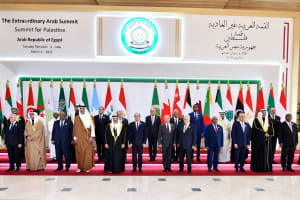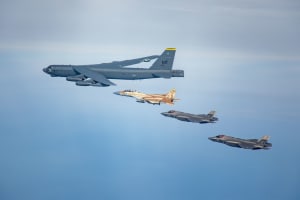Only half of hostages still alive; pressuring Hezbollah can push Sinwar to a deal, Netanyahu reportedly says
US said to back Israeli blows vs Hezbollah but won’t support all-out war

Prime Minister Benjamin Netanyahu suggested that increased Israeli pressure on Hezbollah in the north could potentially change the situation in the Gaza Strip, according to a report by Army Radio on Sunday evening.
Quoting several statements made by the prime minister in a closed session of the Knesset’s Foreign Affairs and Defense Committee, Army Radio said Netanyahu was confident the escalating Israeli strikes in the north could result in Hamas leader Yahya Sinwar showing more flexibility in the hostage deal talks.
However, Netanyahu reportedly also said that only half of the Israeli hostages in captivity are still alive. According to the latest official numbers, 101 hostages are still in Gaza, of whom 35 have been confirmed dead.
With the hostage deal talks appearing stuck again, the parties are reportedly searching for a new formula that Hamas may agree to.
In the cabinet meeting, Netanyahu reportedly said that an offer recently presented by Israel’s hostage envoy, Gal Hirsch, as well as a plan created by Maj.-Gen. (res.) Giora Eiland, are being considered.
The prime minister reportedly reiterated that he wasn’t preventing a hostage deal, which was confirmed the same day by White House National Security spokesman John Kirby.
“It doesn’t appear that Mr. Sinwar is prepared at all to keep negotiating in good faith, especially after he murdered six hostages in a tunnel, execution style,” Kirby said during an interview on ABC on Sunday. “It doesn’t appear as if he’s willing to move this forward.”
“Nasrallah will regret what he did, and Sinwar is sorry already. There are more surprises on the way,” said Netanyahu.
Meanwhile, Israeli media outlets reported on Sunday that the Biden administration is backing Israel’s strategy on the northern front for the moment but won’t support an escalation into an all-out war, fearing it might involve U.S. forces in the region.
Such a war is “certainly not going to be in the best interest of all those people that Prime Minister Netanyahu says he wants to be able to send back home,” said Kirby.
“Therefore, even if there is an understanding of the new Israeli tactic dubbed ‘escalate - to bring about non-escalation,’ the American administration is asking Israel not to reach the maximum level in its response basket,” according to KAN News.
The U.S. government reportedly asked Israel to “leave room” for a diplomatic solution with Hezbollah.
“We still believe that there can be time and space for a diplomatic solution here and that’s what we’re working on,” Kirby added.
On the Israeli side, statements by the political and military leadership indicate that Israel has decided to escalate beyond the red lines set in the previous months of fighting while leaving the decision to initiate an all-out war in the hands of Hezbollah.
During the cabinet meeting, Netanyahu said Israel was “hurting and weakening” Hezbollah, with the goal being to keep them away from the border.

The All Israel News Staff is a team of journalists in Israel.
You might also like to read this:














